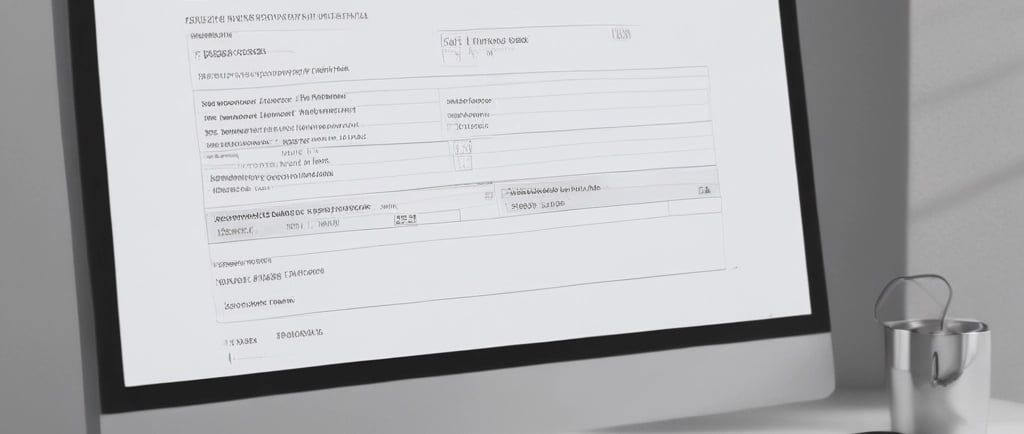Long Hours
Don't Waste Your Time
7/7/20256 min read


My post content has been expanded to include additional thoughts and insights on the topic at hand. I believe it is important to share more details and elaborate on various aspects, making the discussion richer and more engaging for everyone involved. Here, I can express different viewpoints and encourage further reflection on the matter.
Why a Free Website Audit Isn’t a Bad Idea: Uncover Hidden Opportunities for Growth
In today’s digital age, having a strong online presence is non-negotiable for businesses, bloggers, and entrepreneurs. Your website serves as the digital face of your brand—a virtual storefront that can either attract or repel potential customers. However, maintaining a website that performs well, engages users, and ranks high on search engines is no easy feat. This is where a free website audit comes into play. If you’ve been hesitant to take advantage of free website audit tools or services, it’s time to reconsider. Far from being a gimmick, a free audit can provide invaluable insights into your website’s health and performance, helping you identify areas for improvement without breaking the bank.
In this blog post, we’ll dive deep into why a free website audit isn’t a bad idea, explore the benefits it offers, and provide actionable tips on how to make the most of the results. Whether you’re a small business owner, a marketer, or a content creator, read on to discover how a simple audit can be a game-changer for your online success.
What Is a Free Website Audit?
Before we get into the reasons why a free website audit is worth your time, let’s clarify what it actually entails. A website audit is a comprehensive analysis of your website’s performance, structure, and overall effectiveness. It evaluates various aspects such as:
- Technical SEO: Identifying issues like broken links, slow loading times, and crawl errors.
- On-Page SEO: Assessing keyword usage, meta tags, and content optimization.
- User Experience (UX): Evaluating navigation, mobile responsiveness, and overall usability.
- Security: Checking for vulnerabilities like outdated plugins or lack of SSL certificates.
- Performance Metrics: Analyzing page speed, bounce rates, and other key indicators.
A free website audit typically offers a surface-level evaluation of these elements using automated tools or limited services provided by digital marketing agencies. While it may not be as in-depth as a paid audit, it still provides a solid starting point for identifying critical issues and opportunities for improvement.
Why You Should Consider a Free Website Audit
Now that we’ve defined what a website audit is, let’s explore why opting for a free one is a smart move, especially if you’re just starting out or working with a tight budget.
1. It’s a Low-Risk Way to Assess Your Website’s Health
One of the biggest advantages of a free website audit is that it comes with zero financial commitment. If you’re unsure about the state of your website or hesitant to invest in a full-scale professional audit, a free tool or service allows you to dip your toes in the water without any risk. You get a snapshot of your website’s performance and can decide whether or not to take further action based on the findings.
For instance, tools like Google PageSpeed Insights, SEMrush’s free audit feature, or even Ubersuggest can quickly highlight glaring issues such as slow load times or missing meta descriptions. These insights give you a starting point to address problems before they escalate.
2. Identifies Hidden Issues You Might Have Overlooked
Even if you think your website is running smoothly, there could be underlying issues that are quietly hurting your performance. A free website audit can uncover problems like broken links, duplicate content, or poor mobile optimization that you might not have noticed otherwise.
For example, if your website takes too long to load, visitors are likely to bounce before even seeing your content. According to Google, a page load time of just 3 seconds can increase bounce rates by 32%. A free audit tool can flag this issue and prompt you to take corrective measures, such as compressing images or enabling browser caching, to improve user experience and retain visitors.
3. Helps You Stay Competitive in a Crowded Digital Space
The online world is incredibly competitive, with millions of websites vying for attention. A free website audit can give you a competitive edge by revealing how your site stacks up against industry standards. Many free audit tools provide benchmark data or compare your website’s performance to that of your competitors, helping you identify gaps in your strategy.
For instance, if your competitors are ranking higher on search engines because of better keyword optimization or faster loading times, a free audit can point this out and guide you toward making the necessary improvements. Staying ahead of the curve is crucial, and a free audit is an easy way to get started.
4. Saves Time and Resources
Hiring a professional agency or consultant for a full website audit can be expensive and time-consuming. While paid audits often provide more detailed and personalized insights, they may not be feasible for everyone, especially small businesses or solo entrepreneurs. A free website audit, on the other hand, is quick and accessible. Most tools deliver results within minutes, allowing you to focus on fixing issues rather than spending hours manually analyzing your site.
5. Acts as a Learning Tool
If you’re new to website management or digital marketing, a free website audit can serve as an educational resource. Many tools not only identify problems but also explain why they matter and how to fix them. For example, if your audit report flags a high bounce rate, it might include tips on improving content engagement or optimizing call-to-action buttons.
By going through the audit process, you’ll gain a better understanding of key concepts like SEO, UX, and web performance. This knowledge empowers you to make informed decisions about your website and its future growth.
Common Misconceptions About Free Website Audits
Despite the benefits, some people remain skeptical about free website audits, often due to misconceptions. Let’s address a few common myths and set the record straight.
Myth 1: Free Audits Are Just a Sales Pitch
It’s true that some companies offer free audits as a way to upsell their paid services. However, this doesn’t mean the information provided is useless. Even if the audit is a marketing tactic, the insights you gain can still be valuable. Plus, with so many standalone free tools available (like Google Search Console or GTmetrix), you don’t have to worry about being pressured into a purchase.
Myth 2: Free Audits Are Inaccurate
While free audits may not be as comprehensive as paid ones, they’re far from inaccurate. Most free tools use reliable algorithms to analyze your website and provide data based on widely accepted best practices. Of course, they might not catch every nuance or offer customized recommendations, but they’re still a great starting point for identifying major issues.
Myth 3: I Don’t Need an Audit If My Website Looks Fine
A website that “looks fine” on the surface might still have underlying issues affecting its performance. For instance, your design might be visually appealing, but if your site isn’t mobile-friendly or has slow load times, you’re likely losing visitors and potential customers. A free audit can reveal these hidden problems and help you address them before they impact your bottom line.
How to Make the Most of a Free Website Audit
Getting a free website audit is just the first step. To truly benefit from it, you need to take action based on the results. Here are some tips to maximize the value of your audit:
1. Choose a Reputable Tool or Service
Not all free audit tools are created equal. Stick to well-known and trusted options like:
- Google PageSpeed Insights for performance and speed analysis.
- Google Search Console for SEO and indexing issues.
- SEMrush or Ahrefs free audit features for a broader analysis of SEO and backlinks.
- GTmetrix for detailed insights into page speed and performance.
These tools are backed by industry leaders and provide reliable data to work with.
2. Prioritize the Most Critical Issues
A free audit might generate a long list of issues, which can feel overwhelming. Focus on fixing the most critical problems first—those that have the biggest impact on user experience and search engine rankings. For example, if your site has slow loading times or broken links, address these before worrying about minor on-page SEO tweaks.
3. Use the Audit as a Benchmark
Run a free audit periodically to track your progress over time. By comparing results from different audits, you can see whether your changes are making a difference and identify new issues that may have cropped up.
4. Supplement with Manual Checks
While free tools are great for automated analysis, they can’t catch everything. Supplement the audit with manual checks, such as testing your website on different devices or asking for user feedback to gauge the real-world user experience.
5. Invest in Professional Help If Needed
If your free audit uncovers complex issues that you’re not equipped to handle (like advanced technical SEO problems or security vulnerabilities), consider investing in professional help. A free audit can help you justify the cost of paid services by showing you exactly where you need assistance.
